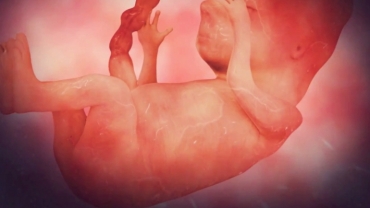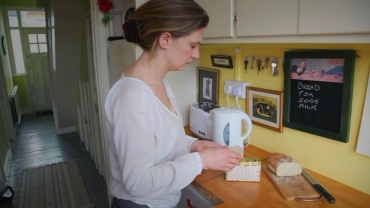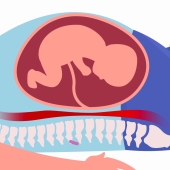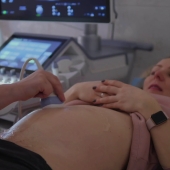Recent research shows Finland to be the best country to be a mother. Still 15% of the expectant mothers in Finland smoke cigarettes. The situation is even worse among teenage mothers, out of whom 50% smoke during pregnancy.
There are almost 10,000 ash babies born in Finland every year. The campaign aims to challenge the attitudes and beliefs around smoking during pregnancy, and encourage mothers to quit.
8 Dangers of Smoking While Pregnant:Miscarriage and stillbirth: The unexpected loss of a pregnancy is a tragic event at any stage. Miscarriages typically occur in the first three months of pregnancy. On rare occasions, they can occur after 20 weeks of gestation. This is called a stillbirth. According to the U. S. Centers for Disease Control and Prevention (CDC), smoking raises the likelihood of both early miscarriage and stillbirth. The dangerous chemicals in cigarettes are often to blame. Other complications from smoking can lead to problems with the placenta or slow fetal development. These issues can also cause a miscarriage or stillbirth.Ectopic pregnancy: According to a study published in the journal PLoS One, nicotine can cause contractions in the fallopian tubes. These contractions can prevent an embryo from passing through. One possible result of this is an ectopic pregnancy. This happens when a fertilized egg implants outside of the uterus, either in the fallopian tube, or in the abdomen. In this situation, the embryo must be removed to avoid life-threatening complications to the mother.Placental abruption: The placenta is the “lifeline” structure that forms during pregnancy to provide the fetus with nutrients and oxygen. Smoking is a major risk factor for several complications linked to the placenta. One such problem is placenta abruption. This is a condition in which the placenta separates from the uterus before childbirth. Placenta abruption can cause severe bleeding and threaten the life of both the mother and the baby. There’s no surgery or treatment to reattach it. Immediate medical attention may help increase the chance of a healthy birth despite placenta abruption.Placenta previa: Smoking is also a risk factor for placenta previa. During pregnancy, the placenta normally grows in the uterus towards the top of the womb. This leaves the cervix open for delivery. Placenta previa is when the placenta stays in the lower part of the uterus, partially or fully covering the cervix. The placenta often tears, causing excessive bleeding and depriving the fetus of vital nutrients and oxygen.Preterm birth: According to the CDC, smoking during pregnancy can cause preterm birth. That’s when a baby is born too early. There are numerous health risks associated with a preterm birth. These can include:- Visual and hearing impairments- Mmental disability- Learning and behavioral problems- Complications that could result in deathLow birth weight: Smoking can also cause babies to be born with a low birth weight. This doesn’t just mean delivering a small baby. Low birth rate can also lead to other health problems and disabilities. Advances in medical care have reduced the number of deaths as a result of low birth weight.Birth defects: Smoking can also cause babies to be born with a low birth weight. This doesn’t just mean delivering a small baby. Low birth rate can also lead to other health problems and disabilities. Advances in medical care have reduced the number of deaths as a result of low birth weight.The unfortunate truth: Many pregnant women still smoke despite the known risks the habit will create for themselves and their babies. According to the CDC, 10 percent of women report that they smoked during the last three months of pregnancy. The only real way to avoid pregnancy complications associated with smoking is to quit.
- 339 views













